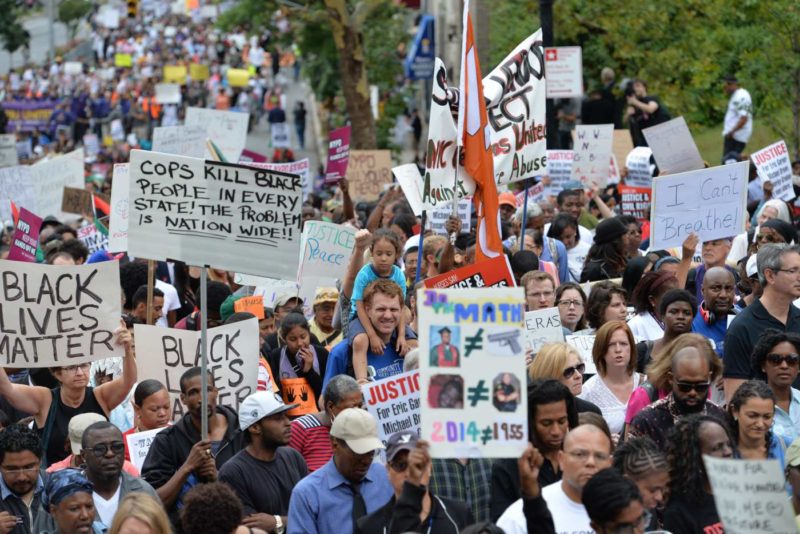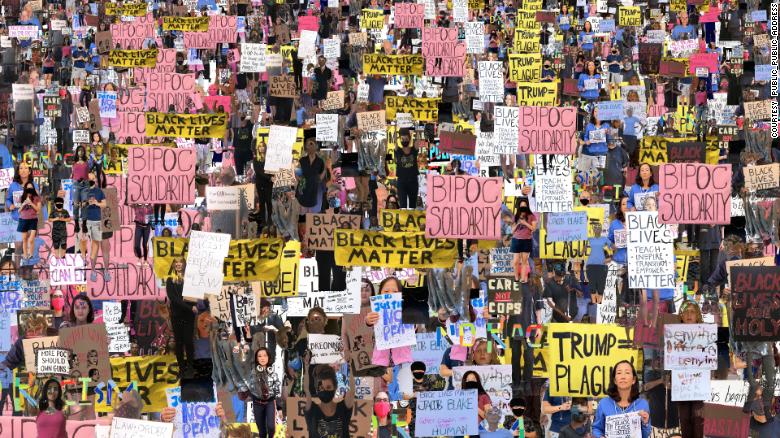Special News Series: Rising Up For Justice! – Website helps people with illnesses and disabilities participate in BLM protests
Share
Explore Our Galleries
Breaking News!
Today's news and culture by Black and other reporters in the Black and mainstream media.
Ways to Support ABHM?
Introduction To This Series:
This post is one installment in an ongoing news series: a “living history” of the current national and international uprising for justice.
Today’s movement descends directly from the many earlier civil rights struggles against repeated injustices and race-based violence, including the killing of unarmed Black people. The posts in this series serve as a timeline of the uprising that began on May 26, 2020, the day after a Minneapolis police officer killed an unarmed Black man, George Floyd, by kneeling on his neck. The viral video of Floyd’s torturous suffocation brought unprecedented national awareness to the ongoing demand to truly make Black Lives Matter in this country.
The posts in this series focus on stories of the particular killings that have spurred the current uprising and on the protests taking place around the USA and across the globe. Sadly, thousands of people have lost their lives to systemic racial, gender, sexuality, judicial, and economic injustice. The few whose names are listed here represent the countless others lost before and since. Likewise, we can report but a few of the countless demonstrations for justice now taking place in our major cities, small towns, and suburbs.

To view the entire series of Rising Up for Justice! posts, insert “rising up” in the search bar above.
This website helps people with illnesses and disabilities participate in Black Lives Matter protests
By Alaa Elassar, CNN
September 27, 2020

Three artists have partnered to launch a digital platform that allows people unable to march in the streets to participate in Black Lives Matter protests.
High-profile killings of several Black people by police sparked nationwide protests this summer, with marchers demanding police reform and racial justice.
Jason Lazarus, Siebren Versteeg and Stephanie Syjuco founded Public Public Address on September 1 to help people with illnesses and disabilities participate in these protests and make their voices heard without putting their lives at risk.
“This is all about our solidarity with Black Lives Matter. We want people to be a part of the movement whether they can protest on the streets or not,” Lazarus told CNN. “Our goal is battling systemic racism and violence and bringing all kinds of people along with us.”
Public Public Address urges people who are unable to protest in person to submit videos or photos of themselves protesting anywhere in the world. Submissions have been shot in people’s homes, backyards and even beds.
The site edits the submissions and weaves them together, creating one large virtual protest. It’s broadcast online every day and all day with no end date in sight.
Read the full article here.
More Breaking News here.











Comments Are Welcome
Note: We moderate submissions in order to create a space for meaningful dialogue, a space where museum visitors – adults and youth –– can exchange informed, thoughtful, and relevant comments that add value to our exhibits.
Racial slurs, personal attacks, obscenity, profanity, and SHOUTING do not meet the above standard. Such comments are posted in the exhibit Hateful Speech. Commercial promotions, impersonations, and incoherent comments likewise fail to meet our goals, so will not be posted. Submissions longer than 120 words will be shortened.
See our full Comments Policy here.